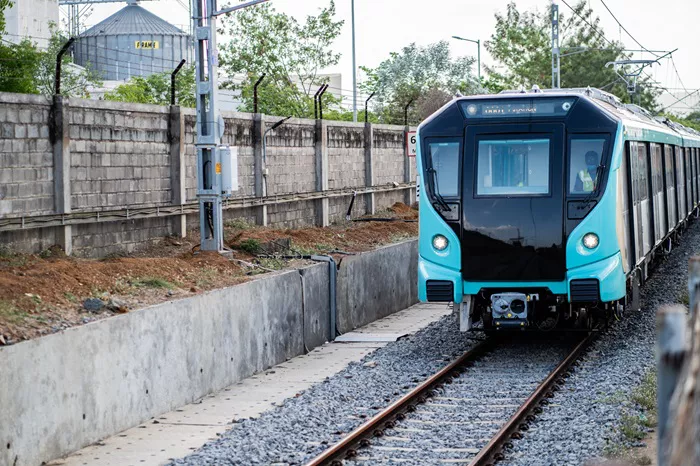Alstom, a global leader in smart and sustainable mobility solutions, has signed a landmark contract with Metro de Madrid to upgrade the signaling system on Line 6, making it the city’s first fully driverless metro line. This 23.5-kilometer circular route, which serves 28 stations and accommodates nearly 400,000 daily commuters, is set for a major technological leap, enhancing efficiency, sustainability, and the overall passenger experience.
From Semi-Automatic to Fully Autonomous The project will involve a comprehensive upgrade to the existing communications-based train control (CBTC) system. The current Grade of Automation 2 (GoA2), which allows for semi-automatic operation, will be replaced by Grade of Automation 4 (GoA4), enabling fully autonomous, driverless operation. Additionally, a new Automatic Train Supervision (ATS) system will be implemented, offering real-time monitoring and enhanced train management.
Cutting-Edge Urbalis CBTC Technology Alstom’s Urbalis CBTC technology, central to the upgrade, is renowned for improving safety, reliability, and network capacity. With this advanced system, trains on Line 6 will operate more frequently and efficiently, reducing energy consumption and enhancing the passenger experience. Alstom brings over 30 years of expertise in CBTC solutions, with technology already deployed on 190 metro lines in 32 countries, including 67 driverless systems in cities like Paris, Milan, and Riyadh.
Alstom’s Madrid Excellence Hub Leads the Way This transformative project will be led by Alstom’s Railway Signalling Excellence Centre in Madrid, a global hub for urban and mainline signaling technologies. With over 800 experts, the center has delivered several high-profile projects, both locally and internationally. Notable achievements in Spain include signaling systems for ADIF lines, the Metro de Porto’s urban lines, and the Automated People Mover (APM) for Madrid International Airport’s T4 terminal.
“We are grateful to Metro de Madrid for their trust in our team and our Excellence Centre in Madrid to deliver this transformative project. This contract reflects our commitment to enhancing mobility in Madrid through state-of-the-art technology and innovation,” said Leopoldo Maestu, Alstom Managing Director for Spain and Portugal.
A Strong Legacy of Collaboration Alstom and Metro de Madrid have enjoyed a long-standing partnership spanning over five decades. Alstom was instrumental in introducing the first CBTC signaling systems for Lines 1 and 6, and it continues to play a key role in providing interlock systems and traction equipment for the metro fleet.
Revolutionizing Madrid’s Urban Mobility This cutting-edge project will redefine Madrid’s public transportation landscape. By transitioning Line 6 to fully driverless operations, Alstom and Metro de Madrid are setting new standards for urban mobility, ensuring a more sustainable, efficient, and safer metro system for millions of commuters.

